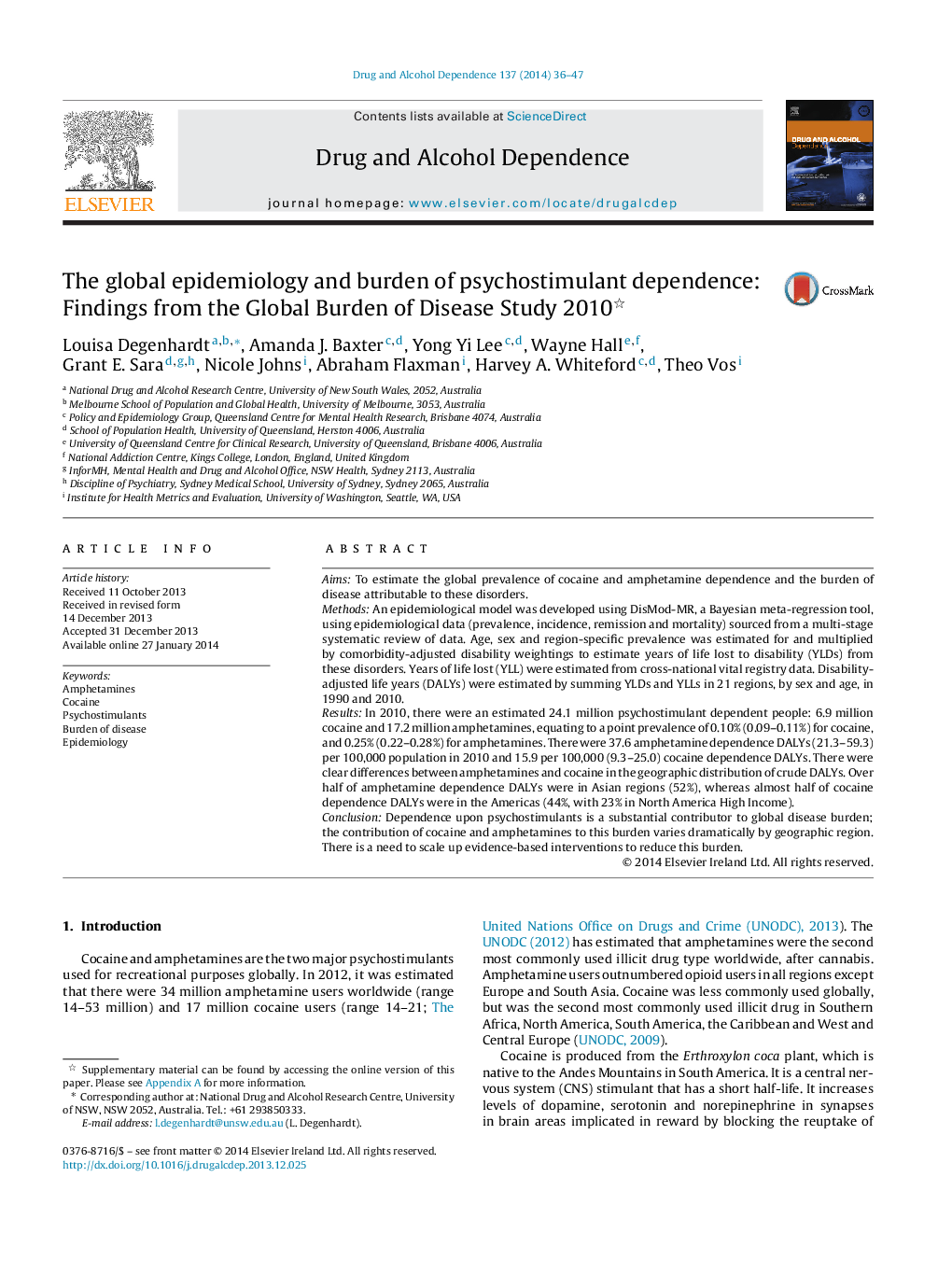| کد مقاله | کد نشریه | سال انتشار | مقاله انگلیسی | نسخه تمام متن |
|---|---|---|---|---|
| 1069937 | 1486154 | 2014 | 12 صفحه PDF | دانلود رایگان |
AimsTo estimate the global prevalence of cocaine and amphetamine dependence and the burden of disease attributable to these disorders.MethodsAn epidemiological model was developed using DisMod-MR, a Bayesian meta-regression tool, using epidemiological data (prevalence, incidence, remission and mortality) sourced from a multi-stage systematic review of data. Age, sex and region-specific prevalence was estimated for and multiplied by comorbidity-adjusted disability weightings to estimate years of life lost to disability (YLDs) from these disorders. Years of life lost (YLL) were estimated from cross-national vital registry data. Disability-adjusted life years (DALYs) were estimated by summing YLDs and YLLs in 21 regions, by sex and age, in 1990 and 2010.ResultsIn 2010, there were an estimated 24.1 million psychostimulant dependent people: 6.9 million cocaine and 17.2 million amphetamines, equating to a point prevalence of 0.10% (0.09–0.11%) for cocaine, and 0.25% (0.22–0.28%) for amphetamines. There were 37.6 amphetamine dependence DALYs (21.3–59.3) per 100,000 population in 2010 and 15.9 per 100,000 (9.3–25.0) cocaine dependence DALYs. There were clear differences between amphetamines and cocaine in the geographic distribution of crude DALYs. Over half of amphetamine dependence DALYs were in Asian regions (52%), whereas almost half of cocaine dependence DALYs were in the Americas (44%, with 23% in North America High Income).ConclusionDependence upon psychostimulants is a substantial contributor to global disease burden; the contribution of cocaine and amphetamines to this burden varies dramatically by geographic region. There is a need to scale up evidence-based interventions to reduce this burden.
Journal: Drug and Alcohol Dependence - Volume 137, 1 April 2014, Pages 36–47
